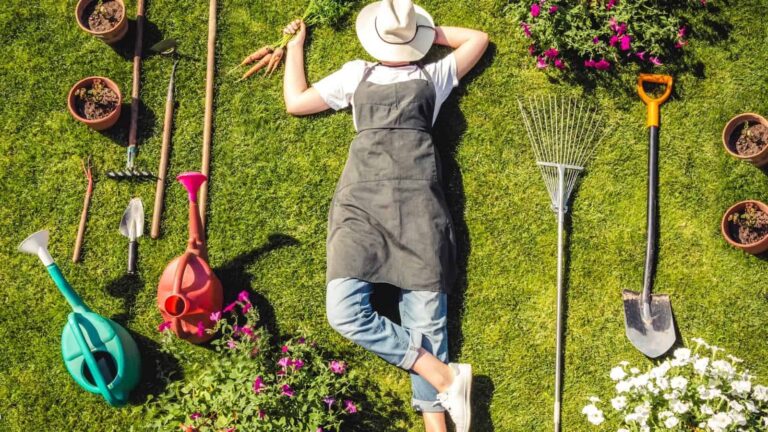Starting a garden can feel overwhelming, but with a few simple tricks, you’ll be growing healthy plants in no time. Whether you’re working with a small space or just getting started, these easy garden hacks will make the process smoother and more enjoyable. Here’s how to get your green thumb going!
Start with Easy-to-Grow Plants
If you’re new to gardening, begin with plants that are forgiving and easy to grow. Herbs like basil, mint, and parsley are perfect for beginners since they don’t require much attention and grow quickly. Vegetables like lettuce and radishes are also great choices because they’re hardy and thrive in most conditions.
Choosing low-maintenance plants builds your confidence and helps you learn the basics. As you gain experience, you can gradually add more challenging plants to your garden.
Use Eggshells for Seedlings
Eggshells aren’t just great for composting—they also make fantastic little seed starters. After cracking your eggs, save the shells and fill them with soil. Plant seeds in the eggshells, and once they sprout, you can transfer the whole thing into the garden. The eggshell will naturally decompose and provide nutrients to the growing plant.
This hack is not only eco-friendly but also a simple way to give your seedlings a boost. Plus, it’s a fun project that kids will love helping with!
Make Your Own Compost
Composting might sound complicated, but it’s actually one of the easiest ways to improve your garden’s soil. Start by collecting kitchen scraps like vegetable peels, coffee grounds, and eggshells, along with yard waste like leaves and grass clippings. Layer them in a compost bin or pile, and let nature do its work.
Homemade compost enriches the soil, helps retain moisture, and provides your plants with essential nutrients. It’s an affordable, sustainable way to keep your garden healthy all year long.
Water in the Morning
Watering your plants at the right time can make all the difference. The best time to water is in the early morning, before the sun gets too hot. This allows the water to soak into the soil and reach the roots before it evaporates.
Watering in the morning also helps prevent mildew and other diseases that thrive in wet conditions. If you water too late in the day, the moisture can linger on leaves overnight, creating a breeding ground for pests and disease.
Use Mulch to Keep Weeds Away
Mulch is your best friend when it comes to keeping weeds at bay. Spread a layer of organic mulch, like wood chips or straw, around your plants. This will prevent weeds from taking over your garden while also helping the soil retain moisture.
Mulch also breaks down over time, adding valuable nutrients to your soil. It’s a simple, natural way to keep your garden healthy and tidy without using chemicals.
If you enjoyed this post, please give Candid Joy a follow on MSN.

